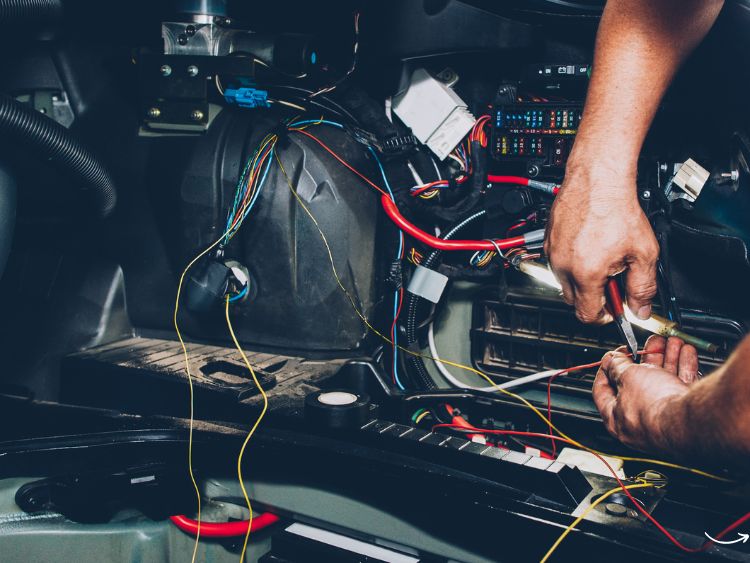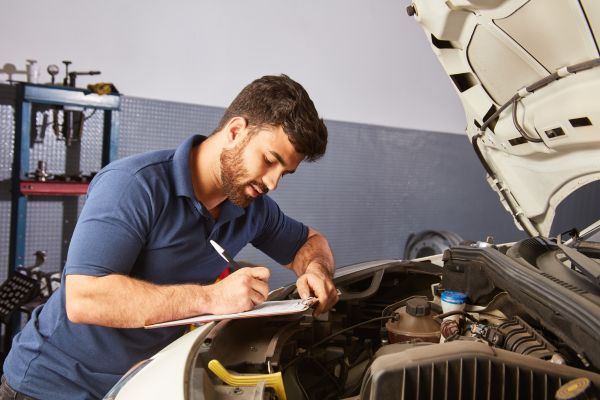Owning a European car is a statement—these vehicles are synonymous with luxury, performance, and precision engineering. Whether you’re driving a sleek BMW, a sophisticated Mercedes-Benz, or a dynamic Audi, you know the importance of maintaining your car’s peak performance. That’s where European auto service comes into play. But what exactly does it entail, and why should you opt for specialized care? In this comprehensive guide, we’ll dive into the world of European auto service, uncovering everything you need to know to keep your prized vehicle running smoothly.
What is European Auto Service?
European auto service refers to the specialized maintenance and repair services tailored to European-made vehicles. These services go beyond standard auto care, focusing on the unique needs and specifications of European cars. From the type of oil used to the specific diagnostic tools required, European auto service centers are equipped with the expertise and technology to handle the intricate details of these vehicles.
Why European Cars Require Specialized Service
European cars are built with different standards and specifications compared to their American or Asian counterparts. Here’s why specialized service is crucial:
- Precision Engineering: European cars are known for their complex engineering and advanced technology. Specialized mechanics understand these intricacies, ensuring that every component functions perfectly.
- Specialized Parts: European vehicles often require specific parts that may not be readily available in standard auto shops. European auto service centers have access to these parts, ensuring quality replacements.
- Advanced Diagnostics: European cars have unique diagnostic systems that require specialized tools and software. A regular mechanic might not have the equipment to accurately diagnose issues, leading to potential problems down the road.
Common Services Offered in European Auto Service Centers
When you bring your vehicle to a European auto service center, you can expect a wide range of services tailored to your car’s needs. Here are some of the most common:
- Routine Maintenance: This includes oil changes, tire rotations, brake inspections, and other essential services to keep your car in top shape.
- Engine Repair: European cars often have complex engines that require specialized knowledge to repair and maintain. Expert mechanics can handle everything from minor tune-ups to major overhauls.
- Transmission Services: Whether it’s a simple fluid change or a complete transmission rebuild, European auto service centers are equipped to handle the delicate components of your vehicle’s transmission system.
- Brake Services: European vehicles often come with advanced braking systems that require specialized care. From pad replacements to brake fluid changes, these services ensure your car stops as smoothly as it accelerates.
- Electrical Diagnostics: European cars are packed with electronic systems that control everything from the windows to the engine. Specialized tools and knowledge are required to diagnose and fix any electrical issues.
- Suspension and Steering: European cars are renowned for their smooth handling, thanks to advanced suspension and steering systems. Regular inspections and maintenance are crucial to maintaining this performance.
The Importance of Regular Maintenance
Regular maintenance is the key to prolonging the life of your European car and ensuring it runs efficiently. Here’s why it’s non-negotiable:
- Prevention of Major Issues: Routine check-ups can catch minor issues before they turn into costly repairs.
- Maintaining Resale Value: A well-maintained European car retains its value better than one with a patchy service history.
- Optimal Performance: Regular maintenance keeps your car performing at its best, ensuring a smooth and enjoyable driving experience.
Recommended Maintenance Schedule
While each vehicle may have its specific needs, here’s a general maintenance schedule you can follow:
- Oil Change: Every 5,000 to 7,500 miles
- Tire Rotation: Every 6,000 miles
- Brake Inspection: Every 10,000 miles
- Transmission Fluid Replacement: Every 30,000 to 60,000 miles
- Coolant Flush: Every 50,000 miles
- Spark Plug Replacement: Every 30,000 miles
Following this schedule helps prevent unexpected breakdowns and ensures your vehicle remains in top condition.
Choosing the Right European Auto Service Center
Not all auto service centers are created equal, especially when it comes to European cars. Here are some tips to help you choose the right one:
- Check Certifications: Look for certifications from organizations like the National Institute for Automotive Service Excellence (ASE) or manufacturer-specific certifications.
- Read Reviews: Online reviews can give you insights into the experiences of other customers. Look for consistently high ratings and positive feedback on the quality of service.
- Ask About Experience: Inquire about the experience the mechanics have with your specific make and model. The more experience they have, the better they can diagnose and fix any issues.
- Compare Pricing: While specialized service can be more expensive, it’s essential to compare pricing across different centers to ensure you’re getting a fair deal.
- Warranty and Guarantees: A reputable European auto service center will stand by its work, offering warranties or guarantees on parts and labor.
What to Avoid
- Generic Auto Shops: While they may offer lower prices, generic auto shops often lack the expertise and tools needed to service European cars properly.
- Unlicensed Mechanics: Always ensure the mechanics are licensed and certified to work on European vehicles.
- Too-Good-to-Be-True Deals: If a deal seems too good to be true, it probably is. Low prices can often indicate subpar service or the use of non-OEM (Original Equipment Manufacturer) parts.
FAQs About European Auto Service
Q: How often should I service my European car? A: It’s recommended to follow the manufacturer’s maintenance schedule, typically every 5,000 to 10,000 miles, depending on your driving habits and conditions.
Q: Can I use regular motor oil in my European car? A: No, European cars often require specific types of motor oil designed for their engines. Using the wrong oil can lead to engine damage.
Q: Why is European auto service more expensive? A: The higher cost is due to the specialized parts, tools, and expertise required to service European vehicles properly.
Q: Can any mechanic service a European car? A: While any mechanic can technically service a European car, it’s best to go to a specialist who understands the unique needs of these vehicles.
Q: What should I do if my check engine light comes on? A: Bring your car to a European auto service center immediately. The check engine light can indicate a range of issues, from minor to severe.
Conclusion
Maintaining a European car is more than just a routine—it’s about preserving the precision and performance that these vehicles are known for. By opting for specialized European auto service, you ensure that your car receives the care it needs from experts who understand its intricacies. Whether it’s regular maintenance, complex repairs, or simply keeping it in pristine condition, choosing the right service center is key to enjoying your European car for years to come.
Remember, your car is an investment. Treat it with the respect it deserves by entrusting it to professionals who know it inside and out.
Authoritative Links
For further reading and resources, here are some authoritative links on European auto service:
By following these tips and guidelines, you’ll be well on your way to keeping your European car in excellent shape, ensuring it remains the pride of your driveway.



